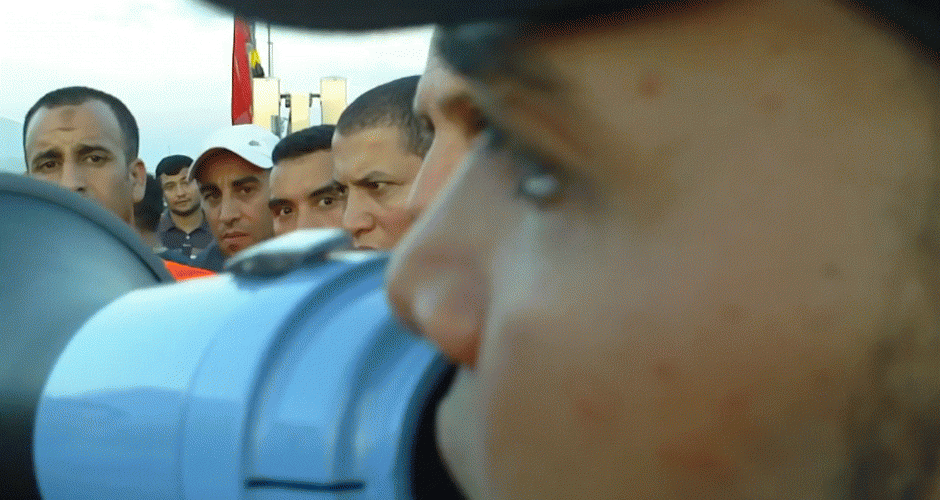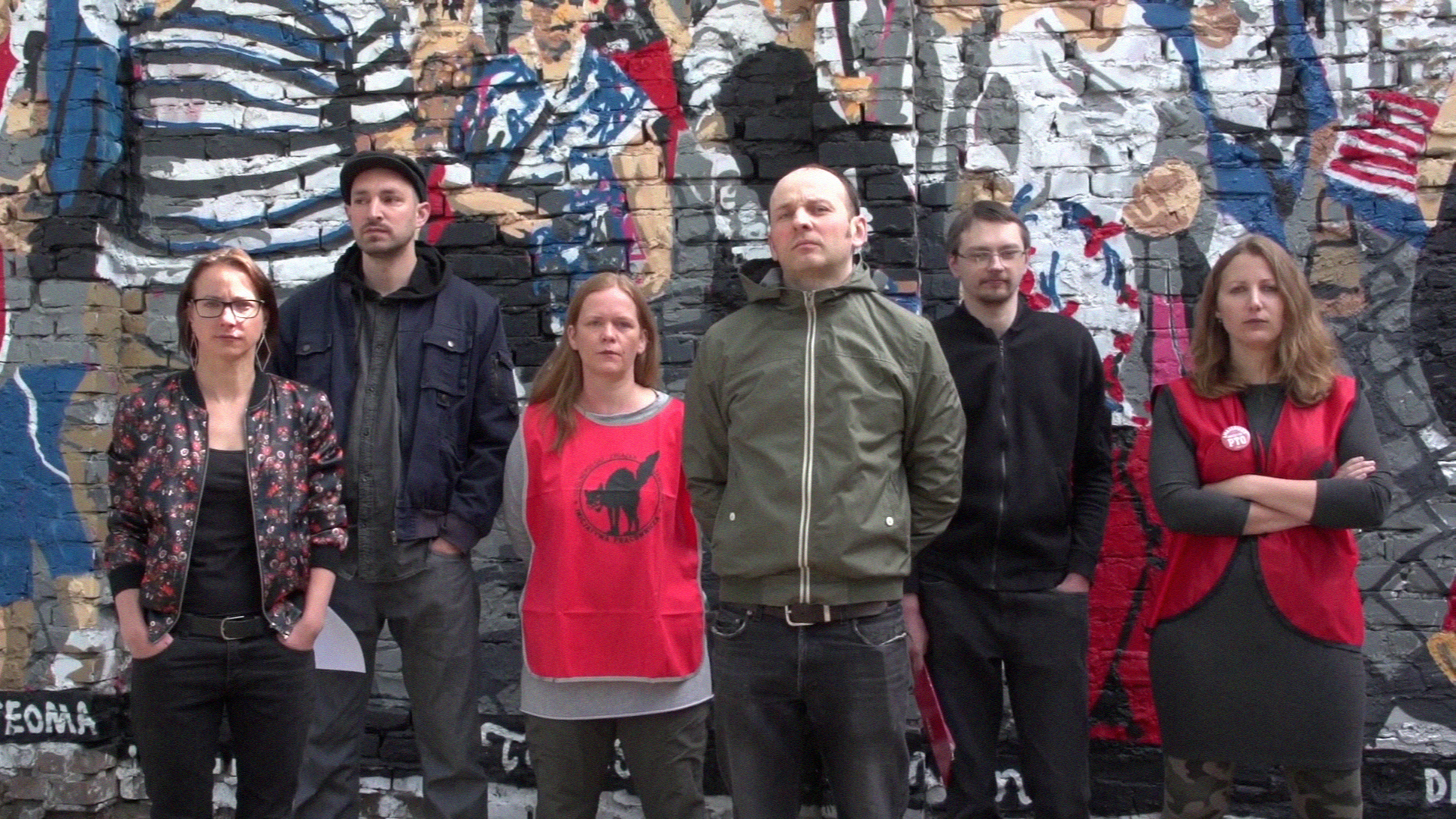We are a collective of media activists
We see ourselves as part of a worldwide movement that is organising to implement a reasonable, peaceful and egalitarian economic and social system. As media activists, we depict the world from the perspective of the people who keep the show on the road: the workers. We document the struggles that workers wage because they show us that the future is not set in stone.
With a focus on feminism
Women have to organise against their exploitation as workers, while at the same time being exposed to sexualised violence by men from an early age, doing the lion's share of unpaid reproductive work and having to live in fear of walking the streets at night. WTF? Of course, we are particularly interested in what women have to say who, from this social position, organise strikes and advance class struggles.
Video as a medium
Films and videos are a good way of reaching people who don't have the time or inclination to read a lot. Video can be used not only to convey facts, but also to show the mood, anger, enthusiasm, joy and body language of those involved. The atmosphere is conveyed on video and, in the best case, invites people to go out on the next day of strike action.

What we do
Since 2011, we have been building an online archive of films from the workers' movement. We produce strike videos and feature films, organise events and take part in practical solidarity actions for struggling workforces.
Document strikes
Strikes are one of the most powerful forms of resistance. In our videos, we document current strikes and other industrial disputes by asking active colleagues to explain what is going on. On the one hand, our aim is for you to use our videos to start a conversation with your colleagues and motivate them. On the other hand, we want to correct the reporting of strikes in the bourgeois media by reporting from the perspective of the colleagues. Our videos show that people are by no means powerless at their workplace. They encourage people not to put up with anything and to build collective countervailing power.

Feature films
Every few years, when we think we a bit more to say, we produce a feature-length documentary. This was the case with the film about the militant group at Opel in Bochum, ‘Air To Breathe’ (2019), or our film ‘The Loud Spring’ (2022), in which we formulated a strategic proposal for the climate movement. And sometimes there are successful strike waves that we document because they show us that the future is not set in stone, as in ‘Ditching The Fear’ (2015)

Archive
We collect historical and current films about working conditions, strikes and uprisings and make them available free of charge, online and for events. Our archive is a living image memory for the history of class struggles in different countries. These experiences are usually closed off, especially to poor people, who would need the knowledge from past class struggles the most. By archiving these films and making them easier to find, we want to make the experiences of struggle captured in them more accessible.


Our values
Explaining stuff
The mainstream media usually do not provide information in a way that makes fundamental connections clear. They mainly report on details that are detached from each other as they don't seem to be interested in viewers getting an adequate picture of an event or a situation. But that is exactly what we want: to provide information in such a way that viewers can understand what is happening. So that it becomes clear how urgently the world needs to change and how it can be changed.
From the workers' perspective
We show up where the struggle to overcome the relations of production has been taken up: in strikes, in strike tents, in blockades, in occupied factories. We are interested in what people have to say who do the hardest work and earn the least. And who have probably never spoken in front of a camera before. We do this work independently of trade unions, political parties, foundations or political groups.
Internationalism
The power and production chains of large companies do not stop at national borders. That is why our solidarity must be international. Through our work, we create links between struggling workers around the world. We support solidarity campaigns by the workforces of international companies by taking part in protest actions or writing press releases. As the workers in the Italian logistics industry always say: when they attack one of us, they attack us all.

